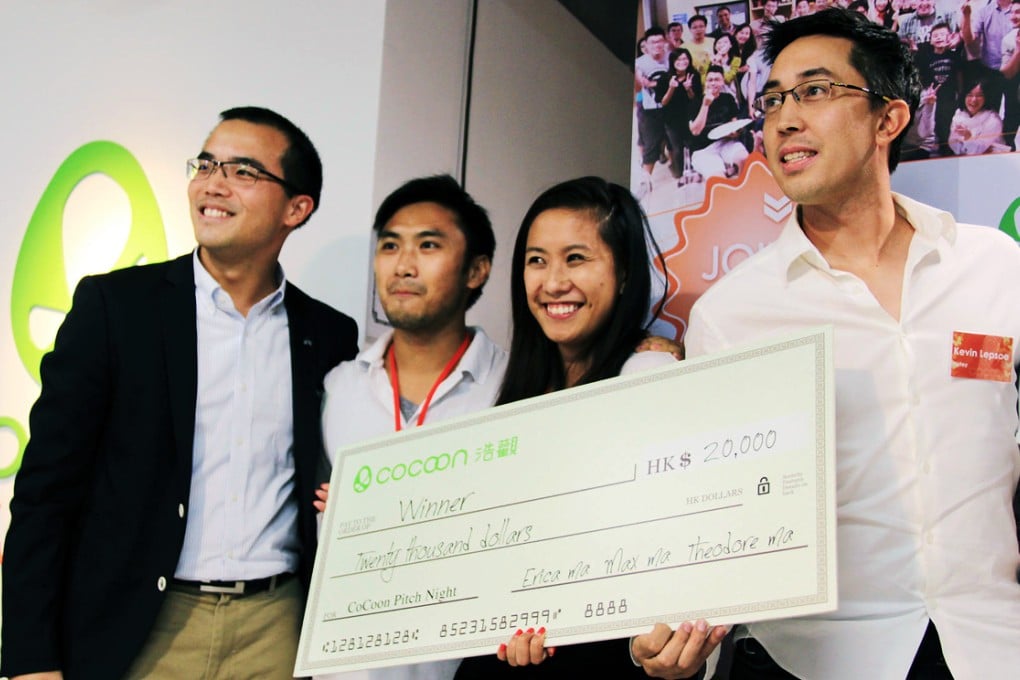Rise of the geeks: Hong Kong's young entrepreneurs plot a tech revolution
Traditional Hong Kong investors are paying more attention as a growing number of young entrepreneurs in the city plot the next tech revolution

The atmosphere at this tech start-up pitch night feels like the geeks have finally become the coolest kids at the party.

The winner, Notey, a topic-based, searchable platform for the blogosphere, took home HK$20,000 in seed money. In the industry that spawned Dropbox and Airbnb, this is pocket change, but it is a crucial step in being recognised by the technology community.
Cocoon, founded just two years ago, is one of about 40 co-working spaces that have sprung up in Hong Kong in the past four years. It is evidence of the rapid globalisation of start-up culture, where eyes, and money, around the world are searching for the next Mark Zuckerburg.
Co-working spaces provide office space, lightning fast Wi-fi, a 3D printer, and most importantly a community of partners and investors for aspiring entrepreneurs who often have nothing but a laptop and an idea.
"An app is not just an app. An app is a business," says Raymond Yip, co-founder of Shopline, an online platform enabling individual merchants to set up shop. Yip met his co-founder, Tony Wong, outside the elevator at Cocoon.
Last year, Shopline took the top prize at Cocoon's pitch night final. Three months ago Shopline was accepted by 500 Startups in California, ranked by as one of the top 10 business incubators in the world.
